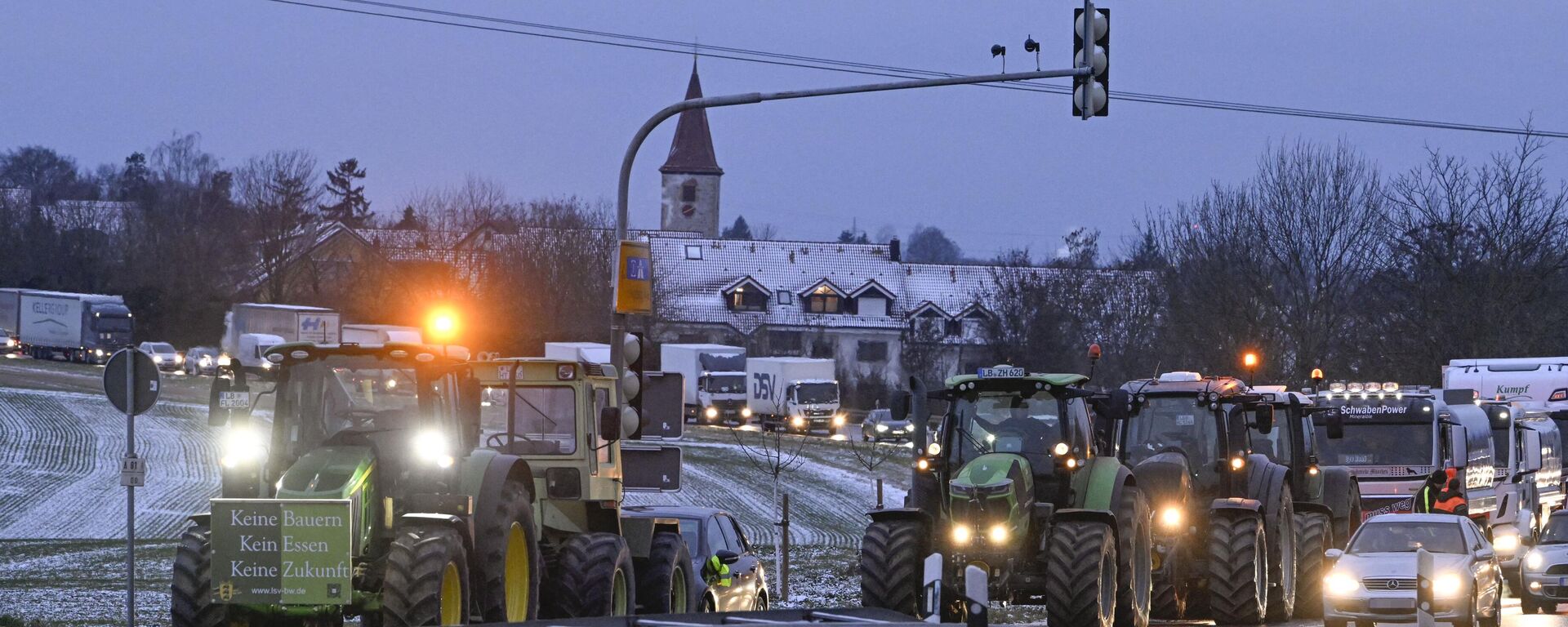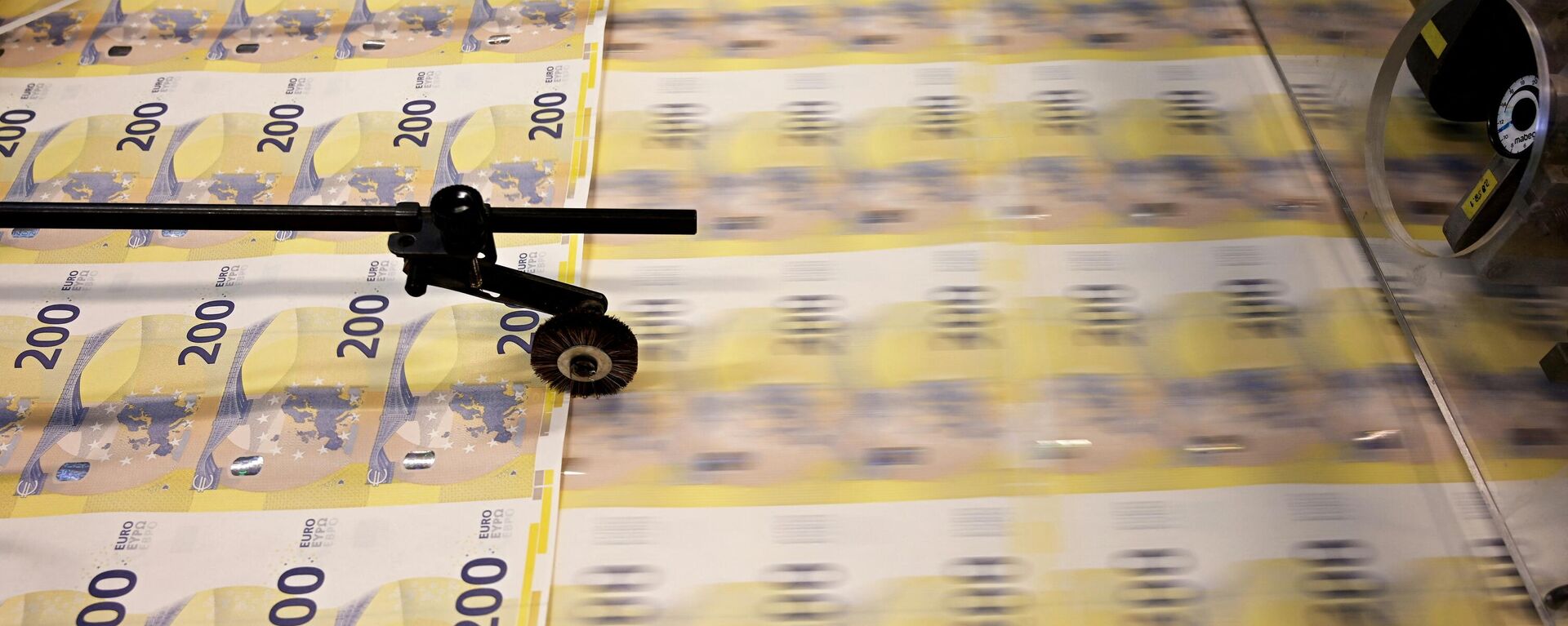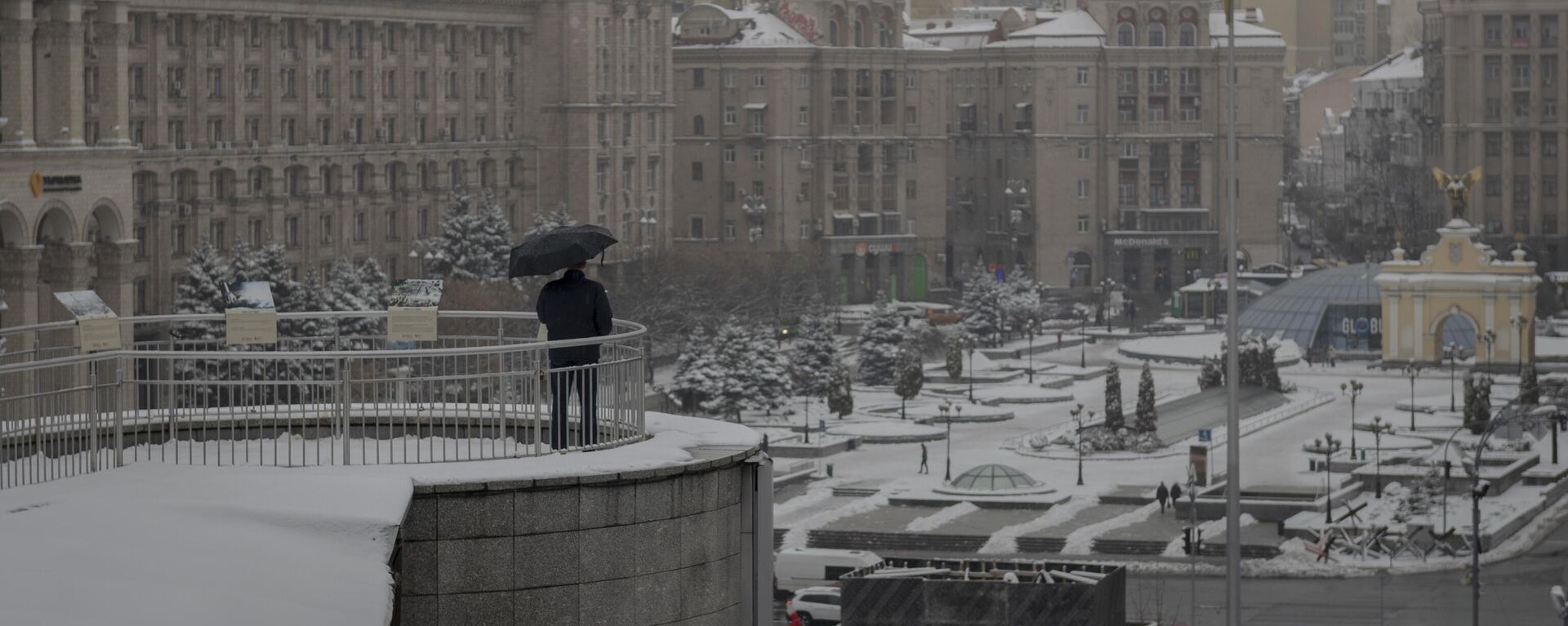https://sputnikglobe.com/20240109/eu-brainstorms-way-to-blame-russia-for-blocs-own-crushing-tariffs-against-ukraine-1116078888.html
EU Brainstorms Way to Blame Russia for Bloc's Own Crushing Tariffs Against Ukraine
EU Brainstorms Way to Blame Russia for Bloc's Own Crushing Tariffs Against Ukraine
Sputnik International
2023 witnessed the limits of EU countries’ ‘solidarity’ with Kiev amid the ongoing NATO proxy war against Russia, with several Eastern European countries placing severe restrictions on Ukrainian agricultural exports in a bid to protect local farmers. The dispute escalated after Poland’s president compared Ukraine to a “drowning man.”
2024-01-09T16:42+0000
2024-01-09T16:42+0000
2024-01-09T16:42+0000
economy
kiev
russia
ukraine
european union (eu)
european commission
import
subsidies
tariffs
https://cdn1.img.sputnikglobe.com/img/07e8/01/09/1116078645_0:160:3072:1888_1920x0_80_0_0_2b61c211846cfbc2f7d931ebe89ee6e4.jpg
The European Commission’s chief of agriculture policy has come up with a novel argument for putting bloc-wide restrictions on the export of Ukrainian food products to EU countries, claiming that doing so would only benefit Russia.Wojciechowski’s stance reportedly stands at odds with his fellow Commission members, including President Ursula von der Leyen, who are mulling slash import duties on Ukrainian products until June 2025, presumably to help prop up Ukraine’s economy as Western aid to Kiev slows to a trickle.In reality, the Polish-born EC agriculture chief’s concerns appear to stem from fears that opening the floodgates to Ukrainian food imports would lead Ukrainian producers to flood the market with grain, meat and other food products too cheap for local producers to compete against.Poland, Hungary, and Slovakia took flak from both Brussels and Kiev last year after imposing unilateral bans on Ukrainian grain imports after the European Commission lifted bloc-wide restrictions.In the chaos that followed, Kiev announced that it would file a complaint against the three countries at the World Trade Organization over unfair trade practices. Polish President Andrzej Duda responded by calling Ukraine a “dangerous drowning man” that threatens to “drag” Europe down with it into oblivion.Ukrainian authorities ended up putting the complaint on “pause” while searching for a compromise. Polish authorities called the suspension “a good step but not enough,” saying it should be withdrawn altogether.Eastern European countries’ efforts to keep Ukrainian foodstuffs out have been complemented by Polish truckers and farmers, who began blockading checkpoints along the Ukrainian border late last year in protest over the government’s lack of action to protect local workers, causing kilometers-long lines of trucks to pile up on the Ukrainian side of the frontier. In addition to competition concerns from farmers, Polish truckers expressed discontent over the fact that their Ukrainian counterparts are exempted from the need to obtain permits for border crossings, making their services cheaper than those of Polish haulers.Commissioner Janusz Wojciechowski’s proposal to put EU-wide restrictions on Ukrainian agriculture comes amid growing desperation in Kiev about where to get the money to keep the state from collapsing in the new year as US lawmakers continue to wrangle over a proposed $61 billion aid package, with NATO countries’ collective assistance tanking by nearly 90 percent since last June.US business media warned over the weekend that Kiev could turn to money-printing to plug gaps in the budget if the shortfall in foreign assistance continues, resulting in hyperinflation. Ukraine’s deputy prime minister warned last month that salary and pension payment delays would be imminent if Western support was not immediately forthcoming.
https://sputnikglobe.com/20240109/german-farmers-protest-economic-policy-forced-by-failed-sanctions-on-russia-1116069365.html
https://sputnikglobe.com/20240108/germany-singlehandedly-pays-for-half-of-all-eu-aid-to-ukraine-minister-reveals-1116058230.html
https://sputnikglobe.com/20240107/ukraines-defense-budget-deficit-reaches-113bln---reports-1116022148.html
kiev
russia
ukraine
Sputnik International
feedback@sputniknews.com
+74956456601
MIA „Rossiya Segodnya“
2024
News
en_EN
Sputnik International
feedback@sputniknews.com
+74956456601
MIA „Rossiya Segodnya“
Sputnik International
feedback@sputniknews.com
+74956456601
MIA „Rossiya Segodnya“
why is poland opposed to free trade with ukraine, why is ukraine running out of money
why is poland opposed to free trade with ukraine, why is ukraine running out of money
EU Brainstorms Way to Blame Russia for Bloc's Own Crushing Tariffs Against Ukraine
2023 witnessed the limits of the EU 'solidarity' with Kiev amid the ongoing NATO proxy war against Russia, with several Eastern European countries placing severe restrictions on Ukrainian agricultural exports in a bid to protect local farmers. The dispute escalated after Poland’s president compared Ukraine to a “drowning man.”
The European Commission’s chief of agriculture policy has come up with a novel argument for putting bloc-wide restrictions on the export of Ukrainian food products to EU countries, claiming that doing so would only benefit Russia.
“Trade liberalization would benefit Russia by helping Moscow displace Kiev’s exports, away from regions like Africa and Asia toward the EU, potentially causing destabilizing effects,” Politico wrote,
paraphrasing a letter by Agriculture Commissioner Janusz Wojciechowski explaining why bloc-wide import duties on Ukrainian foodstuffs should be restored.
Wojciechowski’s stance reportedly stands at odds with his fellow Commission members, including President Ursula von der Leyen, who are mulling slash import duties on Ukrainian products until June 2025, presumably to help prop up Ukraine’s economy as Western aid to Kiev
slows to a trickle.
The agriculture commissioner did not elaborate on how Russia, which has been sanctioned extensively by Western countries looking to squeeze Russian food and fertilizer exporters out of Global South markets, would “benefit” from EU restrictions, with the argument most likely an excuse to justify policy which would hurt Europe’s Ukrainian “partners.”

9 January 2024, 04:03 GMT
In reality, the Polish-born EC agriculture chief’s concerns appear to stem from fears that opening the floodgates to Ukrainian food imports would lead Ukrainian producers to flood the market with grain, meat and other food products too cheap for local producers to compete against.
Poland, Hungary, and Slovakia took flak from both Brussels and Kiev last year after imposing unilateral
bans on Ukrainian grain imports after the European Commission lifted bloc-wide restrictions.
In the chaos that followed, Kiev announced that it would file a complaint against the three countries at the World Trade Organization over unfair trade practices. Polish President Andrzej Duda responded by calling Ukraine a
“dangerous drowning man” that threatens to “drag” Europe down with it into oblivion.
Ukrainian authorities ended up putting the complaint on
“pause” while searching for a compromise. Polish authorities called the suspension “a good step but not enough,”
saying it should be withdrawn altogether.

8 January 2024, 15:16 GMT
Eastern European countries’ efforts to keep Ukrainian foodstuffs out have been complemented
by Polish truckers and farmers, who began blockading checkpoints along the Ukrainian border late last year in protest over the government’s lack of action to protect local workers, causing kilometers-long lines of trucks to pile up on the Ukrainian side of the frontier. In addition to competition concerns from farmers, Polish truckers expressed discontent over the fact that their Ukrainian counterparts are exempted from the need to obtain permits for border crossings, making their services cheaper than those of Polish haulers.
Commissioner Janusz Wojciechowski’s proposal to put EU-wide restrictions on Ukrainian agriculture comes amid growing desperation in Kiev about where to get the money to keep the state from collapsing in the new year as US lawmakers continue to wrangle over a proposed $61 billion aid package, with NATO countries’ collective assistance tanking by
nearly 90 percent since last June.
US business media warned over the weekend that Kiev
could turn to money-printing to plug gaps in the budget if the shortfall in foreign assistance continues, resulting in hyperinflation. Ukraine’s deputy prime minister
warned last month that salary and pension payment delays would be imminent if Western support was not immediately forthcoming.

7 January 2024, 00:36 GMT





